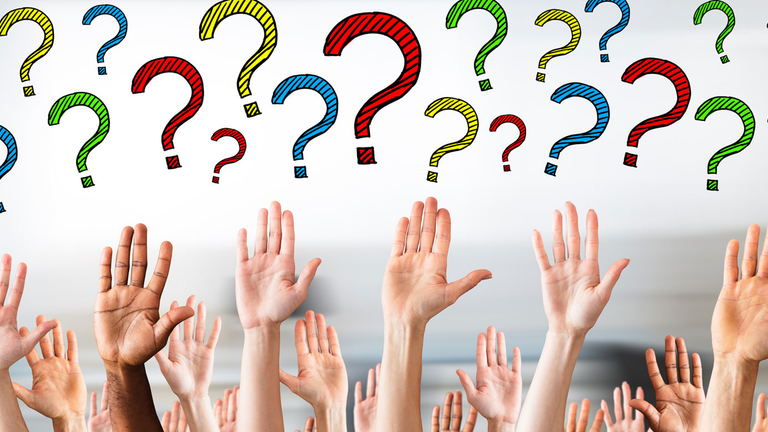How To Talk To People About Homeopathy
Have you ever wondered how to talk to people about homeopathy, but you find yourself sounding a little too out there, vague or you are describing a “result” or “feeling”? Maybe it sounds conceptual? Maybe the person wants a bit more science and you just don’t know where to look? LOOK NO FURTHER!
We have assembled a few great tools for you to more effectively speak about homeopathy to ANYONE – EVEN A SKEPTIC!
HOMEOPATHIC RESEARCH STUDIES EVIDENCE BASE UP TO 2018 – COMPILATION
Curated by Iris Bell M.D., Ph.D., Peter Gold and Mary Lou Sullivan
20 TALKING POINTS ON HOMEOPATHY – HOW TO TALK ABOUT HOMEOPATHY
Thanks to American for Homeopathy Choice for these AWESOME suggestions on how to share homeopathy with others, even skeptics!
“Homeopathy is not legitimate medicine!”
- Homeopathy is a federally recognized form of medicine — a category of drugs listed in the Food, Drug and Cosmetic Act and regulated by the U.S. Food and Drug Administration (FDA).
- Homeopathy is backed by thousands of research studies, papers and clinical trials.
- With over 200 years of clinical experience and publications for insight into their patients’ needs, some 250,000 physicians confidently prescribe thousands of homeopathic medicines to more than 500 million people around the world.
- Homeopathy is incorporated into the World Health Organization’s “Traditional Medicine Strategy, 2014-2023” document, which outlines the WHO’s aim to “promote universal health coverage by integrating T&CM [Traditional and Complementary Medicine] services into health service delivery.”
- Governments in the following countries recognize homeopathy as a system of medicine, medical specialty and/or a complementary or alternative treatment:
- Europe: Albania, Austria, Belgium, Bulgaria, Croatia, Czech Republic, Denmark, Estonia, France, Germany, Greece, Hungary, Italy, Latvia, Liechtenstein, Lithuania, Poland, Portugal, Romania, Russia, Serbia, Slovenia, Spain, Switzerland, United Kingdom
- Americas: Argentina, Brazil, Chile, Colombia, Costa Rica, Cuba, Ecuador, Mexico, United States
- Asia/Middle East: India, Iran, Pakistan, Sri Lanka, United Arab Emirates
- Africa: Nigeria, South Africa, Swaziland
- Western Pacific: New Zealand
“Homeopathy is not safe!”
- Homeopathic medicines are nontoxic because they are ultradilute, and this makes them appropriate for the treatment of children, the elderly and those with compromised immune systems.
- Homeopathy is the safest category of drugs regulated by the U.S. Food and Drug Administration (FDA).
- If, occasionally, products falsely labeled as homeopathic make it to the marketplace, the FDA uses its enforcement authority to remove these products — just as it does with conventional pharmaceuticals which do not meet safety and quality standards.
- For more information on safety, read “The Evidence for Homeopathy’s Safety and Effectiveness.”
“Homeopathy is merely a placebo!”
- The clearest examples of why homeopathy is effective medicine and not merely a placebo come from its success in veterinary care, agriculture (plants), the treatment of infants, and in people who are unconscious or in a comatose state in an intensive care unit. Because scientists universally understand that in these circumstances what are called mind/body placebo effects cannot occur, it is preposterous to claim that the power of suggestion could be a factor in successful homeopathic treatment in such cases.
- ge meta-analyses of double-blinded homeopathic studies have concluded that the homeopathic response is not a placebo effect.
- Very often, patients seek homeopathic treatments after conventional medical interventions have failed to produce improvement, and may have even resulted in unpleasant or dangerous side-effects. Some patients subsequently seek alternative treatments other than homeopathy before trying homeopathic medicines. The fact that the placebo effect has not been induced as a result of previous interventions in these patients suggests that any subsequent improvement resulting from homeopathy should not be assigned to the placebo effect.
“Homeopathy is outside the mainstream — a fringe science.”
- Homeopathy is nontoxic and ultradilute, properties that make it suitable for use in conjunction with conventional pharmaceutical drugs. Homeopathic drugs do not interact with pharmaceuticals, but rather work gently to activate a healing response from the entire human system.
- Homeopathic physicians who are trained in both allopathic and homeopathic medicine say that allopathic and homeopathic medicine complement each other.
- Supporters of homeopathy believe that patients should have the full array of treatment options available to them. This has special significance in an age with challenges such as opioid addiction and antibiotic overuse, both which are being addressed through homeopathy.
“Homeopathy can’t possibly work because no one understands the mechanism of its action.”
- While the effectiveness of homeopathy has been established by a large volume of studies, including double-blind randomized trials — which are considered the gold standard of medical evidence — the mechanism by which homeopathy works is still being investigated. One promising area of research is nanoparticles; in particular, their adaptive network in organisms and stochastic resonance.
- Most people believe that successful medical treatments come from a detailed understanding of how treatments work. The Washington Post reports in “One big myth about medicine: We know how drugs work” that “[k]nowing why a drug works has historically trailed the treatment, sometimes by decades. Some of the most recognizable drugs—acetaminophen for pain relief, penicillin for infections, and lithium for bipolar disorder, continue to be scientific mysteries today.”
“Homeopathy is outdated and old-fashioned.”
- While homeopathy has a long history and is often grouped with so-called “traditional” approaches to medicine, homeopathic medicines are now being recognized as far ahead of their time because they incorporate features that are fast becoming the future of medicine. For instance, the medicines given to homeopathy patients have always been matched to the full circumstances and set of conditions of each patient. This approach of individualized medicine— now frequently called patient-centered care — has always been practiced by homeopathy professionals.
- Homeopathic medicines are nontoxic, which is increasingly seen as the path for the future of medicine. Nontoxic medicines are appropriate for people of all ages and with all conditions.
- In an age of sharply rising drug costs, homeopathic medicines remain affordable and accessible.





